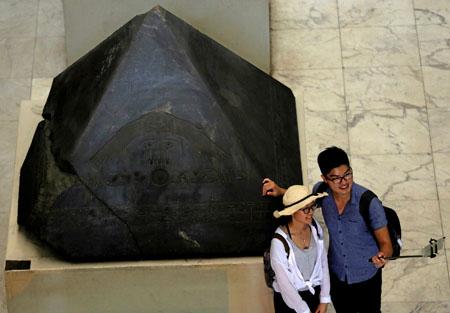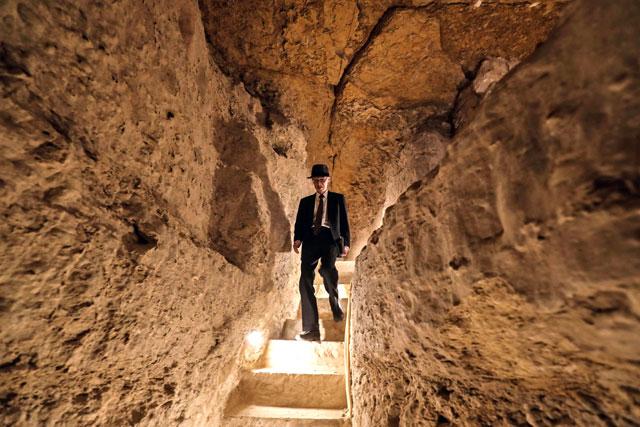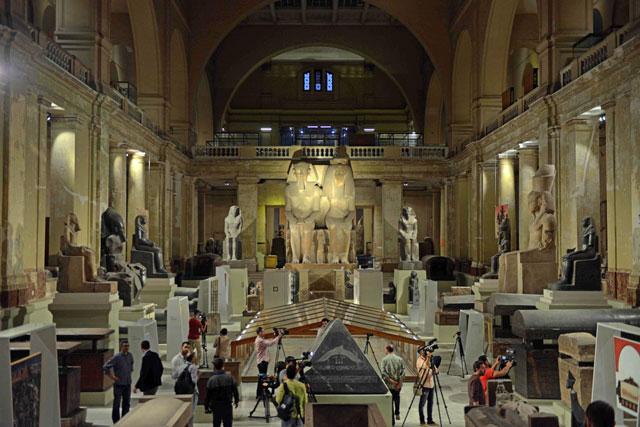You are here
Egypt's economic crisis weighs heavily on heritage — minister
By Reuters - Aug 25,2016 - Last updated at Aug 25,2016

Tourists walk around pharaonic artefacts inside the Egyptian Museum in Cairo, Egypt, on June 23 (Reuters photo)
CAIRO — Egypt cannot afford to keep its museums open let alone search for ancient buried treasures because of the economic crisis, the antiquities minister says.
Tourism, a mainstay of the economy, has been hit hard since the 2011 revolution that overthrew veteran ruler Hosni Mubarak, with many of Egypt's renowned historical sites, from the pyramids at Giza to the Valley of the Kings in Luxor, suffering a decline in foreign visitors.
"We have over 20 museums that have been closed down since the January 25 Revolution and we do not have the resources to run them," Khaled Al Anani told Reuters in an interview.
His ministry is meant to be self-sufficient and not supposed to receive funds from the state budget. In 2010 the ministry made 1.3 billion Egyptian pounds ($146.40 million) a year; in 2015 income was down to 275 million pounds.
"That's a little over 20 million pounds a month. I have to pay 80 million a month in salaries alone."
Anani says that without a revival in tourism none of his new projects, such as the introduction of year-long museums and heritage site passes or extending opening hours will have the desired effect.
Neither will reopening Pyramid Complex of Unas, built for Pharaoh Unas, the ninth and final king of the Fifth Dynasty in the mid 24th century BC, which has been closed since 1998 for fear of overcrowding and which Anani reopened in May.
Still, Egypt plans to partially open the Grand Egyptian Museum, an ambitious planned museum of Ancient Egyptian artefacts that will be the world's largest archaeological museum, in 2017, said Anani, bringing forward the scheduled opening date by a year.
This is only possible because the $248 million needed came from a Japanese loan years ago.
Financial woes also affect excavation attempts, which have seen a steep decline since 2011, he said.
Other issues include a lack of international law experts at the ministry to help claim back Egyptian artefacts that were smuggled to other countries or claimed by the country's former colonial masters as well as the need to create a centralised database of antiquities to combat smuggling, efforts for which had stalled since the year 2000.
Related Articles
CAIRO — Egyptian authorities reopened the 4,700-year-old step pyramid of Djoser to the public on Thursday, after years of renovation.The rou
AMMAN — Egypt on Monday handed over to Jordan ancient coins that had been seized by Egypt's Supreme Council of Antiquities (SCA).Jordan’s Am
CAIRO — Paintings by top Egyptian artists shared wall space with hieroglyphs and Pharaonic relics at Cairo's Egyptian Museum this week













